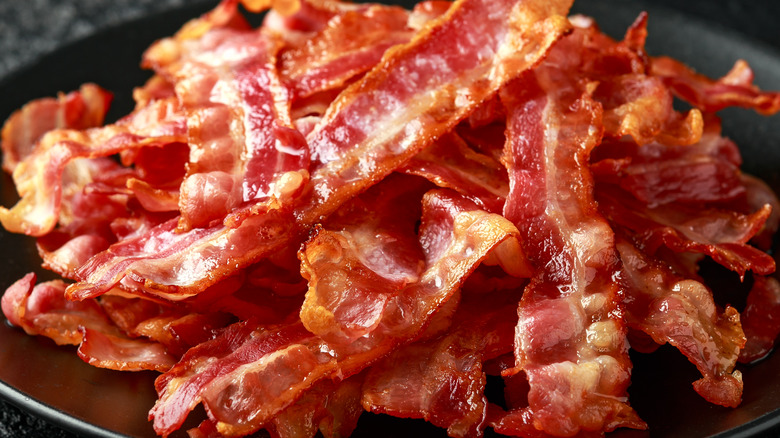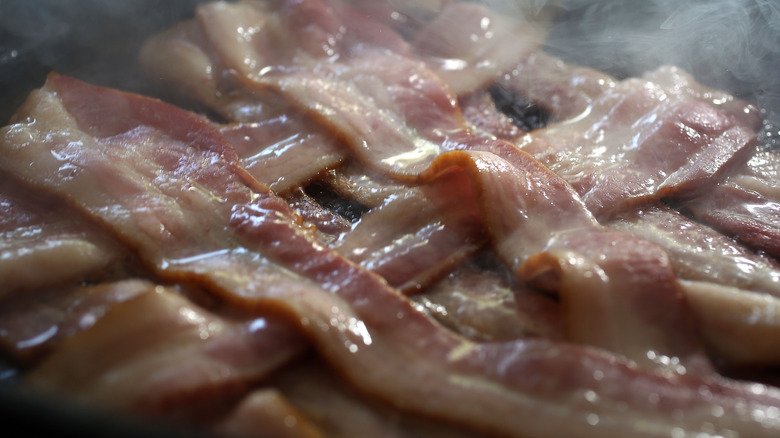How Bacon Was Used To Make Explosives In World War II
Bacon is a crispy and delicious snack in the right hands, but in the wrong hands, chaos can be unleashed. Disasters include wafer-thin slices of meat and inappropriately fatty edges. However, in the midst of World War II, the excess fat produced from cooking bacon had a more surprising — and even deadly — purpose.
Bacon fat as a vicious weapon seems like a bizarre concept, but there was a great demand for innovation and resourcefulness during World War II — and bacon fat emerged as an unlikely player in the effort to produce explosives for the U.S. military.
The American Fat Salvage Committee was formed during the 1940s in order to collect excess cooking fat that would then be given to war experts to turn into explosives, reports The Atlantic. Women (who traditionally took charge of household cooking at the time) were encouraged to save all types of cooking fat to help the war effort. But why was bacon fat important for making bombs — and were people willing to give up their kitchen ingredients?
Donating bacon fat was not popular
U.S. propaganda during World War II urged residents to save cooking fats and dripping because the fats helped to make glycerin — which could then be used to manufacture explosives, explains a Disney cartoon hosted by Digital Exhibits.
The New Hampshire State Library notes that 1 pound of fat could be converted into 1/10 of a pound of glycerin, which in turn made up ⅕ of a pound of nitroglycerin — a component of gunpowder and dynamite. Once a pound of fat had been strained, it could be taken to one of 250,000 butchers in return for four cents, details The Atlantic.
Two billion pounds of waste fats were disposed of a year, which the government claimed could be diverted into creating 10 billion cannon shells. The Atlantic reports that most fat was excluded from use in key weaponry, however, and believes the government's bigger aim was to keep women "busy and productive". Regardless, many citizens were unwilling to give up bacon fat because of its cooking uses, with only around half of housewives participating.

